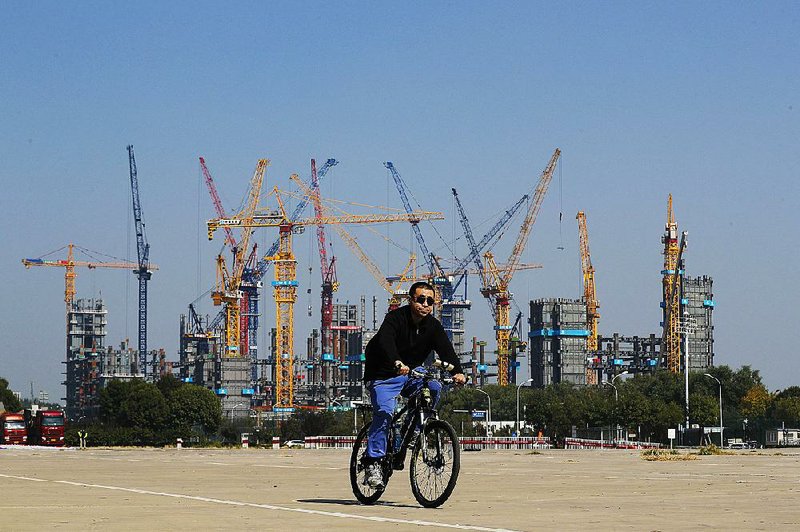WASHINGTON -- The International Monetary Fund on Tuesday raised its forecast for global economic growth to 3.6 percent this year and 3.7 percent in 2018. For both years, the outlook is up 0.1 percentage points from the IMF's previous forecast in July and would mark the fastest growth since 2010.
The world economy grew 3.2 percent in 2016.
Just a year ago, the global economy was still stuck in a slump in the aftermath of the recession of 2007-09 and a debt crisis in Europe. China's economy was slowing steadily, raising fears of economic fallout in the developing countries that supply raw materials to the world's second-biggest economy.
Now the global recovery appears widespread -- three-quarters of the globe is enjoying an upswing for the first time this decade -- and many of the fears have eased.
The United States, the 19-country eurozone, Japan and China are all forecast to grow faster this year.
World trade is expected to grow 4.2 percent this year, the most in six years.
IMF chief economist Maurice Obstfeld said the sunnier outlook for the United States -- 2.2 percent growth this year versus 1.5 percent in 2016 -- did not include any expectations that the U.S. Congress will pass big tax cuts and just reflected healthy U.S. growth in the first half of 2017.
A pickup in investment, industrial production, and consumer and business confidence also underpins the improved global outlook.
But lackluster productivity growth and aging populations continue to drag on growth in the world's wealthiest countries. The international lending agency also notes that inflation remains worryingly low, a sign that the world economy still has not returned to full health in the aftermath of the recession.
The fund warned that medium-term risks are tilted to the downside, highlighting dangers from tightening financial conditions, low inflation in advanced economies, financial turmoil in emerging markets and protectionist policies.
"Neither policy makers nor markets should be lulled into complacency," Obstfeld said in the World Economic Outlook report. "A closer look suggests that the global recovery may not be sustainable -- not all countries are participating, inflation often remains below target with weak wage growth, and the medium-term outlook still disappoints in many parts of the world."
China is expected to report faster growth this year for the first time since 2010, easing collateral damage elsewhere. But the IMF warns that China has taken on high debts to rev up growth and advised Chinese authorities to continue a recent effort to limit growth in credit.
In an indirect reference to the election of President Donald Trump in the United States and Britain's decision to leave the European Union, Obstfeld also warned that growing income inequality within countries has "helped fuel political disenchantment" and a backlash against globalization.
But finance ministers and central bankers from the IMF's 189 member nations will be heartened by the brighter global outlook as they gather this week in Washington for the fund's annual meetings. In a speech last week, Managing Director Christine Lagarde said the IMF is seeing "some sun break through" for the world economy. Investors have been basking for some time, with the MSCI world stock index up 15 percent this year.
But Lagarde warned that a strengthening recovery may be masking more troubling trends, such as an increase in political polarization brought about by inequality. The specter of trade wars also remains, though they may be less of a danger than at recent global economic summits. The same week as the IMF meetings, negotiators from the U.S, Mexico and Canada will meet less than 5 miles away for the fourth round of increasingly tense talks to overhaul the North American Free Trade Agreement.
Information for this article was contributed by Paul Wiseman of The Associated Press and by Andrew Mayeda of Bloomberg News
Business on 10/11/2017

